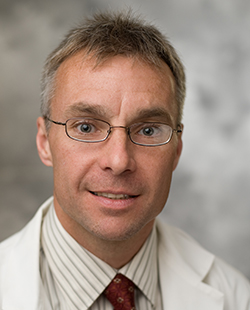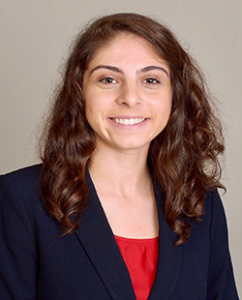Trauma, Injury and Inflammation Research Fellowship
Trauma, Injury and Inflammation Research Fellowship
T32 NIH, NIGMS Institutional Postdoctoral Research Fellowship in Trauma, Injury and Inflammation

Dr. Grant E. O'Keefe
Program Director
The Department of Surgery and Division of Burns, Trauma and Critical Care are committed to training and mentoring the next generation of surgeon-scientists and biomedical researchers. National Institutes of Health (NIH) T32 institutional training grants support postdoctoral research training and are an integral component of the progression from mentored to independent investigators. NIH T32 grants are awarded to an eligible institution, such as the University of Washington, to enhance research training opportunities for individuals selected by the institution. Our overall objective is to ensure that a diverse and well-trained workforce is available to assume leadership roles to advance the nation's biomedical and clinical research agenda.
This training program is headed by Dr. Grant O'Keefe, who oversees both the overall program and his own research and research training activities. Within the program, faculty members serve as mentors and lend their expertise and research opportunities to the trainees as part of the training plan. The program provides salary and tuition support for two and potentially more years of translational and/or applied laboratory research. The goal of this program is to provide scientists-in-training with mentorship and practical experience with research methods related to the biology of trauma, sepsis, and burns and to prepare them for a career in academic surgery. Fellows without a Masters or PhD degree will register in the University of Washington School of Public Health and are expected to obtain a Master's degree. The foundation of the program is participation in ongoing research with NIH-funded faculty with the expectation that the trainee will develop and test their own hypotheses over the 2-year research period. Our program emphasizes collaboration, scientific skepticism and the ethical conduct of research. Upon completing this program, trainees will have developed important skills and expertise necessary to take the next steps in becoming an independent investigator.
Trainees are expected to actively participate in research seminars, journal clubs, Biomedical Research Integrity training and laboratory meetings. Trainees are also expected to present their work at local and national meetings. Our training program provides trainees with the basic knowledge and required skills to enable them to function successfully as independent investigators.
Prerequisites include: 1) Have a MD and or PhD degree 2) must be a U.S. citizen or have permanent U.S. residence; 3) have an academic interest that is related to the physiologic, cellular, or molecular response to injury, sepsis or surgical stress.
We seek to reflect our community with regard to gender, culture and life experiences, age, disability, race, ethnicity, geography, religion, sexual orientation and socioeconomic status. Diversity strengthens our institution, strengthens the research community and therefore, improves the health of our entire community. For further information on diversity programs at the University of Washington, please visit the following websites:
The University of Washington is an affirmative action, equal opportunity employer. We encourage applications from women, minorities, individuals with disabilities, and veterans. In accordance with the goals of the National Institute of General Medical Sciences, our Training Program is committed to increasing the number of under-represented minority and disadvantaged persons entering the program and pursuing a career in the biomedical sciences.
This fellowship program meets the criteria for the Extramural Loan Repayment Program for Clinical Research.
For inquiries, please contact Dr. Grant O'Keefe or Deci Evans via email:
Grant E. O'Keefe, MD, MPH
Professor of Surgery
Adjunct Professor of Neurosurgery
Harborview Medical Center
Department of Surgery
325 Ninth Avenue, Box 359796
Seattle, WA 98104-2499
gokeefe@uw.edu
Deci Evans, Program Manager
deci@uw.edu
206-744-8485
Current Fellows

T-32 Fellow Dr. Nina Mirabadi, Topic of Research Project: Chronic Critical Illness in Severe Trauma Patients, long-term outcomes, infection complications, and unhoused subcohort analyses.

T-32 Fellow Dr. Norma Elizaga Topic of Research: Fluid resuscitation and metabolomics is critically-ill trauma patients.
